Ground Reports
ISIS Candidates Gunned Down Ramesh Shukla For Displaying Tilak, Kalawa And Shikha. Seven Agonising Years Later, Kanpur Family Finds Hope Of Closure
Swati Goel Sharma
Sep 06, 2023, 05:58 PM | Updated Sep 08, 2023, 06:53 PM IST
Save & read from anywhere!
Bookmark stories for easy access on any device or the Swarajya app.
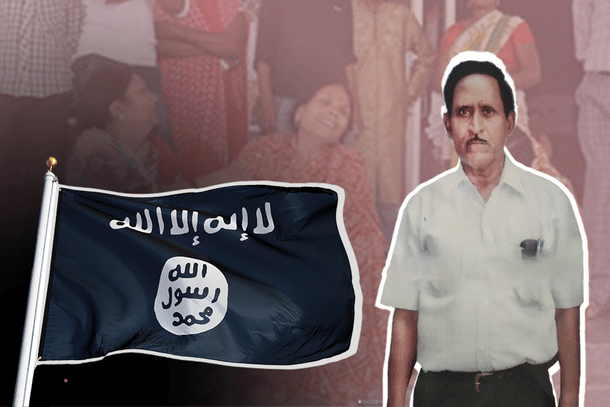
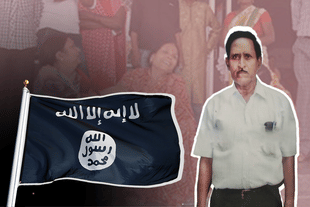
Seven years ago, 20-year-old Akshay Shukla's world came crashing down during a college lecture.
An unexpected, unsettling call from his mother, teary-eyed and shaken, informed him of the unthinkable: Ramesh Babu Shukla, Akshay's father and the beloved principal and teacher of a local school, had been brutally gunned down while on his way home from work.
The site of the tragedy was Jajmau chowki, around 30 kilometre from their home in Vishnupuri colony of Kanpur city in western Uttar Pradesh.
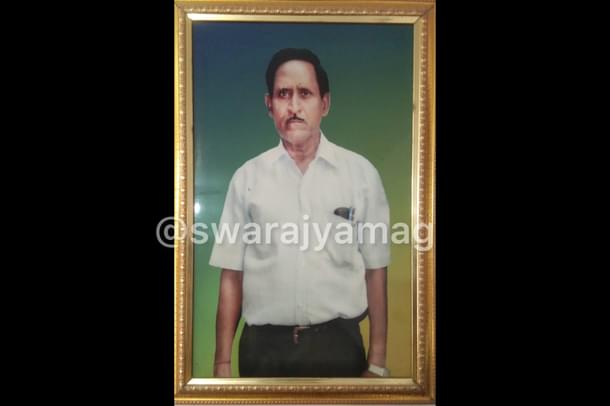
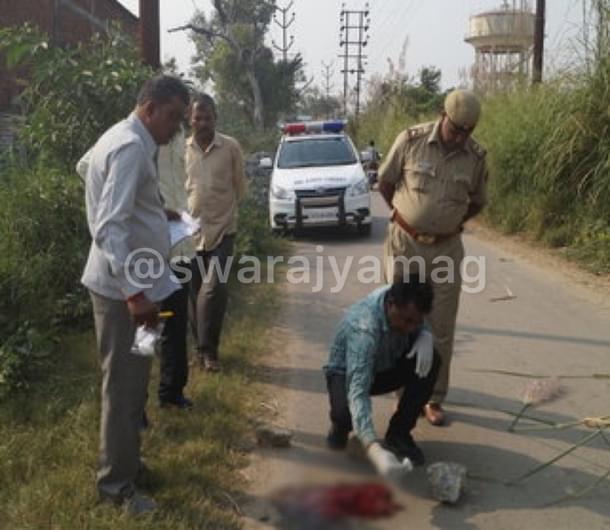
The murder had taken place barely a kilometre from Swami Atmaprakash Brahmchari Junior High School, where Ramesh Babu taught Hindi and Sanskrit. He travelled more than 60 kilometre daily between the school and his home on a bicycle.
Anxiously leaving the lecture, Akshay raced to the crime scene, only to discover his father had been rushed to Kashiram hospital in Gandhigram area. By the time he arrived at the hospital, all that awaited him was the grievous sight of his father’s body, lifeless and covered in blood.
Despite their anguish, the Shukla family cooperated fully with the law enforcement authorities. They repeatedly told the police that Ramesh Babu was a man with no enemies.
Though a case for murder was filed at Chakeri police station against unknown culprits (FIR number 884 filed on 24 October 2016), the police, grappling with scant evidence, soon ceased their active investigations.
In the coming weeks, calls from the family were met with the vexing response: “Do you have any leads?”
Bereft of leads, the investigation languished and the case was closed.
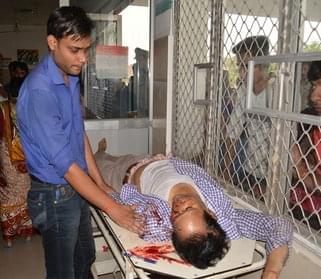
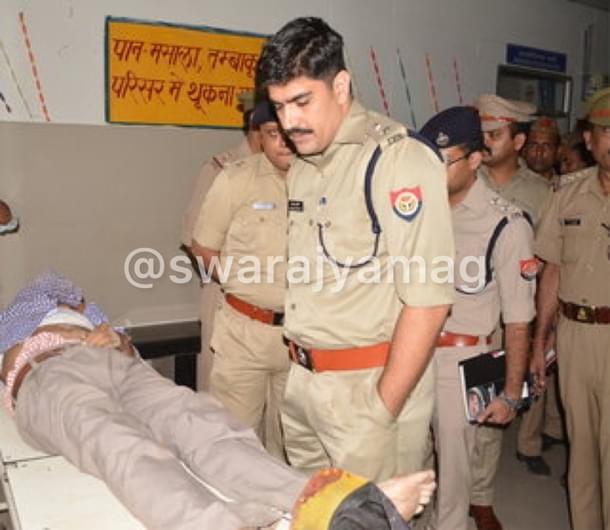
Ramesh Babu's death had proved to be more than a personal loss. As the sole breadwinner, his sudden departure sent his family of five into economic turmoil.
Even though his retirement was on the horizon — he was close to 60 — a significant portion of his earnings was from private tutoring at home.
Akshay, the youngest of three siblings, had a college education to navigate while his elder brother was struggling to land a job in the turbulent private education sector. Ramesh Babu's aspirations for his daughter's marriage had remained unfulfilled.
While the family initially yearned for justice, they began to resign to the possibility that Ramesh Babu’s death might have been a grotesque case of mistaken identity.
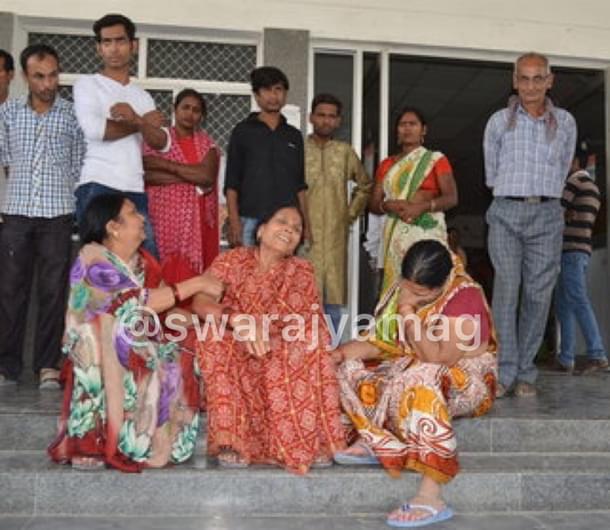
Months passed. Then, on 7 March 2017, an explosion ripped through the Bhopal-Ujjain Passenger train in Madhya Pradesh.
The blast occurred near Jabdi railway station between 9.30 and 10 am, taking ten innocent lives. This act of terror, later revealed to be the Islamic State's first assault in India, was carried out by perpetrators who were self-radicalised and operated without external aid.
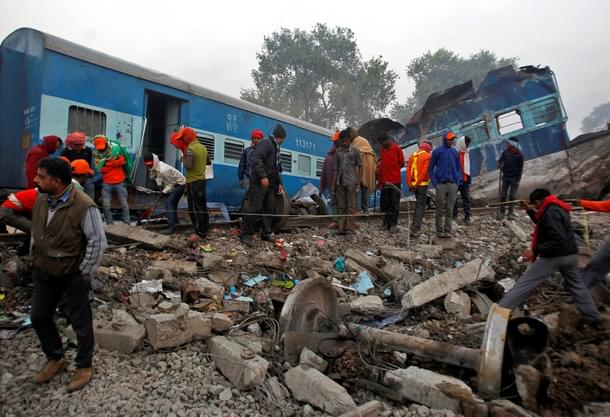
The subsequent investigation led to the arrest of Mohammed Faisal from Kanpur, and eventually, seven accomplices. The blast investigation was handled by the anti-terror squad (ATS) in Lucknow.
Faisal’s testimony brought a startling revelation: he had executed a random act of murder in Kanpur near Pyondli village with two accomplices five months earlier. They had done it to impress the Islamist terror group, ISIS.
As the pieces coalesced, it became evident that Ramesh Babu Shukla had been their victim.
It also emerged that Faisal was helped by Atif Muzaffar, who also helped execute the train blast, and Saifullah, in the murder. Saifullah was killed in an encounter with anti-terror agencies a few days after the train blast.
All three were residents of Kanpur.
This information was conveyed to Akshay’s family in an unanticipated, cryptic inquiry call from an officer from Lucknow a few weeks after the blast.
“The officer asked me about the symbols my father wore that made it evident that he was Hindu,” Akshay told Swarajya. "I told the officer my father, who was a deeply religious man, kept the shikha, wore kalawa and sported tilak. And that everyone called him ‘Guruji’ or ‘Panditji’."
The officer's probing questions about religious symbols worn by Ramesh Babu would soon unveil the unthinkable motive: He had been executed simply for being visibly Hindu.
He was victim of a hate crime, a terror attack.
The revelation left the family stunned. “Who could have thought that my father’s shikha, tilak and kalawa would cost him his life,” says Akshay.
The National Investigation Agency (NIA) took over the murder case in November 2017.
Further revelations from the trial were shattering. The assailants had coldly waited in their vehicle for a target — any “Qafir” (non-Muslim) passerby. Fate chose Ramesh Babu.
The killers had been tasked to kill a Qafir as proof of their allegiance to the ISIS cause, and send a video to their handler in Syria as evidence.
Two days ago, that is on 4 September, a court held the three men guilty of Ramesh Babu's murder.
The Lucknow Special Court of the NIA Special Court convicted Faisal and Muzaffar under Sections 302, 34 and 120B of the Indian penal Code, Sections 16(1)(a) & 18 of the UA(P) Act, and Sections 3, 25 & 27 of the Arms Act.
A note by the NIA says the convicts were held “guilty of killing a retired School Principal in fulfillment and furtherance of Islamic State of Iraq and Syria (ISIS) agenda by spreading fear and terror among the people”.
It further says that the accused, who had been radicalised by the ISIS ideology, were “out to kill people whom they believed to be disbelievers (Qafirs)”, and that they were operating under the influence of ISIS, a proscribed terrorist organization, and had “conspired to carry out terrorist activities (Jihad) in India by targeting non-Muslims through violent acts”.
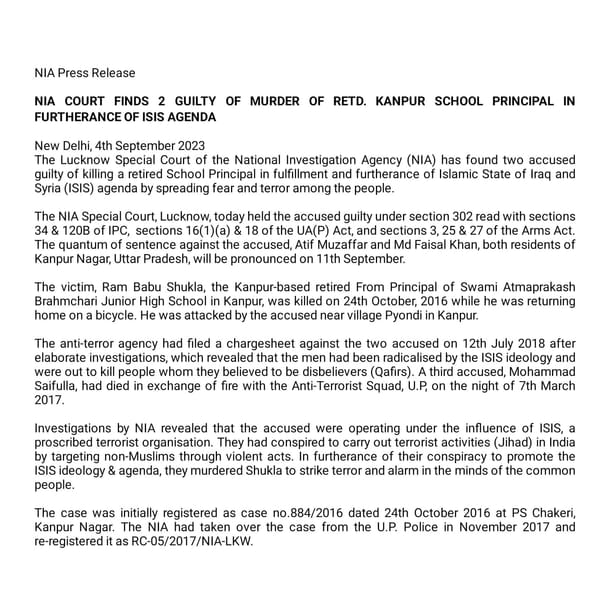
The quantum of sentence against Faisal and Muzaffar will be pronounced on 11 September.
In the train blast case, verdict came out earlier this year. Besides Faisal and Muzaffar, the six other convicts are Gaus Mohammed Khan, Azhar, Danish, Mir Hussain, Asif Iqbal and Atif Iraqi. Except Iraqi, all others were handed death sentence by an NIA special court in March.
After the chargesheet in Ramesh Babu’s murder was filed in July 2018, Akshay, who was the complainant in his father’s murder case, appeared in the Lucknow special court for his statement. There, he came face-to-face with the killers of his father for the first time, albeit through a video.
The killers were not brought to the court, but questioned from jail through video conferencing.
Akshay says he looked at their faces and tried hard to recollect any memories of ever meeting them. “They were strangers. Their faces were unfamiliar,” he recalls.
The Shukla family has, over time, found a semblance of normalcy and financial stability. The brothers are now employed and have begun their own families. Akshay’s elder brother teaches at a private school while he has found a job as teacher in a government school. Their sister was married last year.
Yet, their mother remains vulnerable to the trauma. “She fears for us a lot," says Akshay, and adds, "Sometimes she gets scared when we talk to the media. At other times she panics when we go out wearing tilak and kalawa."
Swati Goel Sharma is a senior editor at Swarajya. She tweets at @swati_gs.





